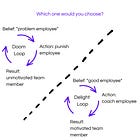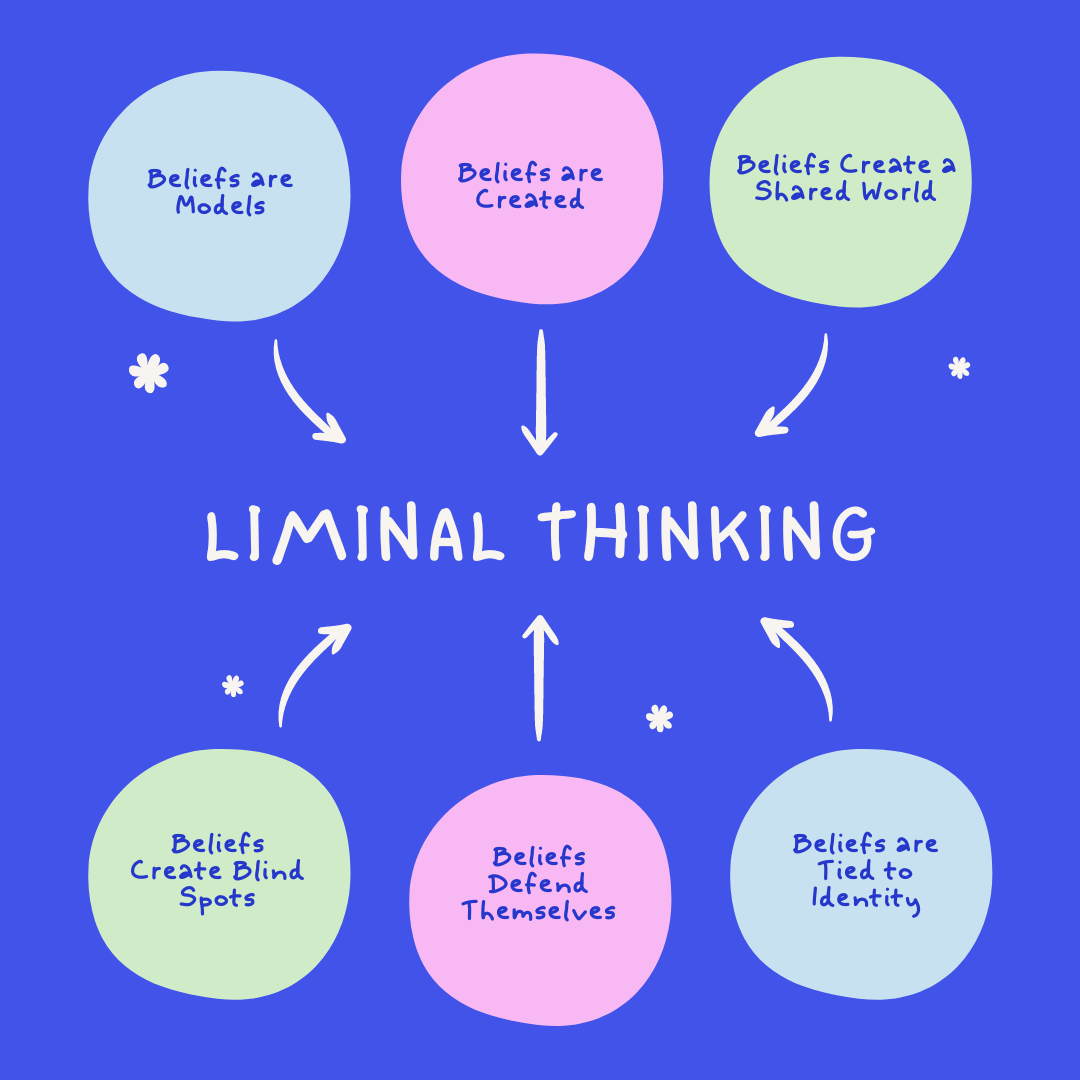Last month, I wrote about Liminal Thinking, a concept and book by Dave Gray. At its core, liminal thinking is about understanding and challenging our beliefs to achieve transformation and change.
So, what does this have to do with software testing? Returning to the six principles of liminal thinking, let’s look at how they apply to software testing.
Beliefs are Models
Concept: Beliefs are simplified models of reality that help us navigate the world.
Application in Testing: Testers create mental models of the software and its users based on requirements, user stories, and past experiences. These models influence how they approach testing. By acknowledging that these are just models, testers will be more open to updating and refining their understanding based on new information or feedback. This can lead to more comprehensive testing strategies.
Beliefs are Created
Concept: Beliefs are formed through experiences, interactions, and the influences of those around us.
Application in Testing: Testers’ beliefs about software behavior and potential issues are shaped by their past experiences and the team or organization's culture. By deliberately cultivating a culture of questioning and curiosity, testers are encouraged to seek diverse experiences and perspectives that challenge their beliefs, leading to more thorough testing.
This is one area where the best testers tend to excel. (Related read: What Makes a Great Quality Engineer?)
Beliefs Create a Shared World
Concept: Shared beliefs create a common understanding and a shared reality among groups.
Application in Testing: Have you ever disagreed with a developer about a bug or requirement? This is mostly likely due to beliefs that are not shared. For example, if the developer believes the product or feature works as intended, this indicates you do not share the same beliefs about the product requirements and/or the current behavior of the software.
Shared beliefs about requirements, users, quality standards, and best practices create a cohesive testing and software quality approach. To ensure these shared beliefs are effective, it’s crucial to regularly review and update them through team discussions, retrospectives, and incorporating feedback from all stakeholders. This helps maintain alignment and ensures the team’s approach evolves with changing needs.
Beliefs Create Blind Spots
Concept: Beliefs can limit our perception and cause us to overlook important aspects of reality.
Application in Testing: Testers might have blind spots based on their assumptions and beliefs about the software or users. For example, they might overlook usability issues because they believe most users are highly technical. To counter this, teams should regularly validate beliefs and assumptions. Data such as user personas or actual usage behavior can uncover blindspots or incorrect beliefs.
Beliefs Defend Themselves
Concept: Beliefs are self-reinforcing and can resist change.
Application in Testing: When testers believe a particular area of the software is flawless, they might subconsciously avoid testing it rigorously. The most common example of this is when testing one’s own code.
Creating a culture where challenging assumptions is encouraged can help. For example, introducing peer reviews of test plans and results can help identify areas where beliefs might hinder thorough testing. Encouraging a mindset of “testing to break” rather than “testing to pass” can also help overcome defensive beliefs.
Beliefs are Tied to Identity
Concept: Beliefs are closely linked to our sense of identity and can be challenging to change.
Application in Testing: Testers often take pride in their expertise and established testing methodologies. Changing these can be seen as a threat to their professional identity. To address this, leaders should emphasize growth and learning as critical components of professional identity. Additionally, fostering an environment where it’s safe to fail and learn from mistakes can help testers feel more comfortable challenging and evolving their beliefs.
Application
Applying liminal thinking to software testing can significantly enhance the quality and effectiveness of testing processes by encouraging testers to challenge assumptions, embrace new perspectives, and foster continuous improvement. Here are some practical applications:
Encourage testers to identify and question their assumptions about the software, its users, and potential issues. For example, instead of assuming that users always use the software in the intended way, consider alternative scenarios and edge cases that might reveal hidden bugs.
Evaluate current testing methodologies and tools critically. Are they truly effective, or are they being used out of habit? This could lead to adopting more innovative and efficient testing techniques like exploratory testing or automation.
Recognize that uncertainty is inherent in software development and testing. Instead of aiming for complete certainty, focus on iterative testing and continuous feedback. This mindset helps the team adapt to changes quickly and address issues as they arise.
Foster an environment where testers are encouraged to experiment, learn from failures, and share their insights. This can lead to the discovery of more effective testing strategies and the continuous improvement of the testing process.
Include input from various stakeholders, such as developers, users, and other team members, to gain a comprehensive understanding of the software and its potential issues. This holistic approach can reveal insights that might be missed when relying solely on one role or team’s perspective.
Break down silos between teams and encourage cross-functional collaboration. This can lead to a more integrated approach to quality, where testing is seen as a shared responsibility rather than a separate function.
Implement iterative feedback loops where testing results are continuously fed back into the development process. Doing this helps catch issues early, fosters incremental improvements, and aligns with the principles of agile and DevOps.
Like this article? Click the ♥️ button or leave a comment 💬.
xo,
Brie
PS. If you’d like to support my writing and my work on QUALITY BOSS, you can show appreciation by leaving me a tip through Ko-fi.
Coaching/Mentoring: Interested in working with me? Book a call here to get started.
My areas of expertise and interest are leadership development, conquering impostor syndrome, values exploration, goal setting, and creating habits & systems. And, of course, Quality Engineering. 🐞





